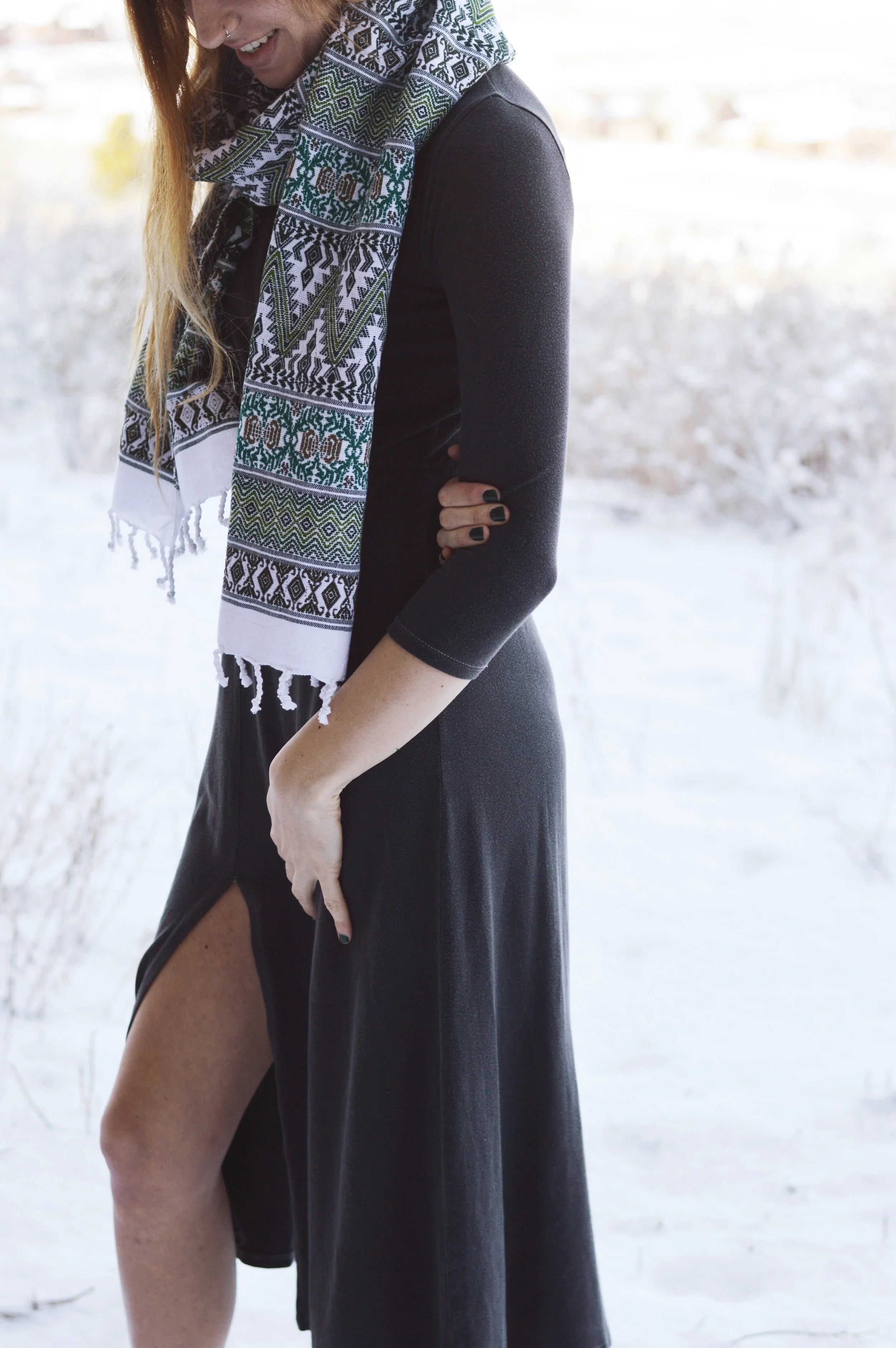Stories of Dressember || Rachel
**The following words are written by a guest author- not my own. I'm honored to use my platform as a place for other women and men to share their stories of what freedom means and why they're participating in Dressember. The following is a personal, authentic account.
If you'd like to share your own story, please fill out the form here. There is plenty of space so don't be shy!*
It’s December, which means that 2017 is finally almost over—and that it’s time to participate in Dressember again! Wearing a dress every day in December is an easy thing to do to bring awareness to gender inequality, and to A21 and IJM, the anti-trafficking NGOs fighting this inequality all over the world.
Some people think we are done with the fight for equality in this day and age. I wish they were right. I really do. But women continue to earn less than men; in fact, women make 81 cents for every dollar earned by men, and this number is even less for women of color. While occupations and industries are less segregated by gender than they used to be, women are still underrepresented in top-tier management roles and government, tech, and TV/film positions. There is still a glass ceiling for women. There is still work to be done before we are truly equal and free from gender bias to do what we want with our lives, to say what we want, walk where we want, write what we want.
I honestly cannot believe the firsts we are still seeing even in 2017. Ava DuVernay is the first woman of color to make a $100-million-dollar movie (A Wrinkle in Time, 2018), and she is only the third woman to cross the $100 million mark because there are fewer female directors and directors of color—or opportunities for them. And in these industries where women can be few and far between, they may face mistreatment ranging from plain old gender bias (are men ever called “bossy”?) to molestation—the kind of mistreatment that should be unacceptable, and instead seems to simply be unacceptable to talk about—until now. Hopefully, things can change, because this work environment isn’t just toxic; it takes away the potential of the women who could have thrived if this bias and objectification didn’t exist.
Representation matters—in media, in government, and in literature, which is my industry. I love books and the worlds they have opened for me, and I love that I get to help create the books that turn kids into readers. I am grateful to work for a publisher that turns young readers into compassionate young adults. I think Young Adult (YA) books are significant in the zeitgeist, and yet I have noticed that YA is sometimes looked down on.
Both YA and romance novels are predominantly written by women, for mostly girl readers. I have heard authors of both genres share stories in which they were asked, “So when are you going to write a real novel?” This is kind of funny to me because romance novels are a $1 billion-dollar industry, and yet aren’t seen as real novels? I can’t help but notice that things that are feminine or for women or by women are often belittled, and this applies not just to dresses and makeup, but also to genre fiction. Some boys can get so offended when their superhero brands have anything to do with girls, never mind that science fiction was invented by teenage Mary Shelley. J.K. Rowling was told to use initials instead of her name (Joanne) so that Harry Potter would appeal to boys as well as girls, because boys really don’t want to read books by a woman? Is there an equivalent for girls, or are we less biased?
However, I am not entirely immune to this bias. I realized a few months ago that I had been somewhat out-of-touch with recent YA fantasy hits, so at the recommendation of several friends, I picked up Sarah J. Maas’s A Court of Thorns and Roses from my local library. The character development and plot blew me away, especially in the second book of the series. I want everyone to give this a shot without me having to preface that it’s romantic fairy YA as if that’s a bad thing. I shouldn’t feel the need to preface a recommendation for a book I love with a warning because I feel like it might be seen as too feminine. My friend Shaun, one of the several to recommend this series to me, put my feelings into words: “Just because a novel may be primarily aimed at a feminine audience doesn't make it less worthy of reading, which I'm embarrassed to have had to tell myself.”
I am grateful for the freedom to wear a dress every day this December, the freedom to fundraise for a cause I believe in, the freedom to read books I love, the freedom to write about why I do Dressember every year—but not all women have these freedoms. Dressember is about freedom, and freedom to me is infinite. Freedom is no glass ceiling. Freedom is girls’ education being valued as much as boys’, and books by and for women being as respected as books by and for men. I hope in the future that things won’t be so gendered, and that being feminine or effeminate can be a source of pride instead of the pink underside of masculinity. Freedom is choice, and love. Freedom is not having to write about why you should care.
Words by: Rachel Chlebowski, Old Bridge, NJ,




